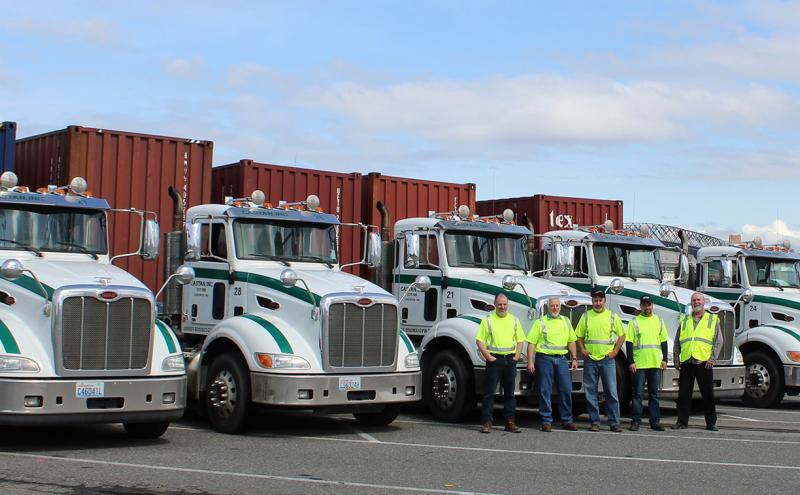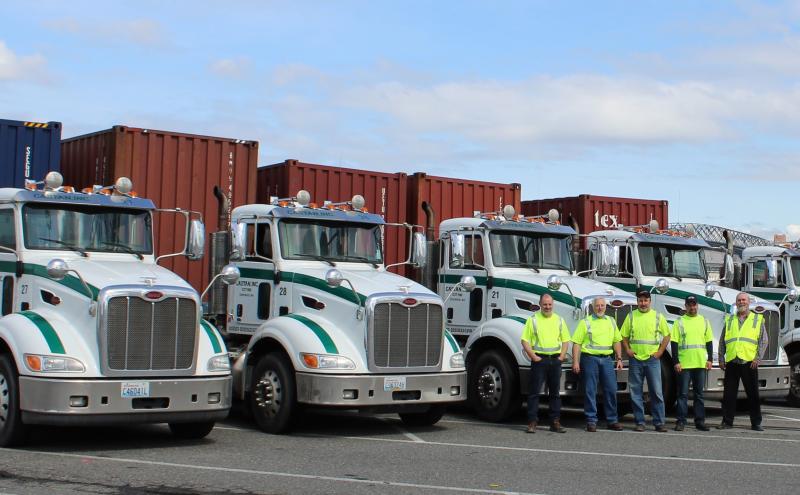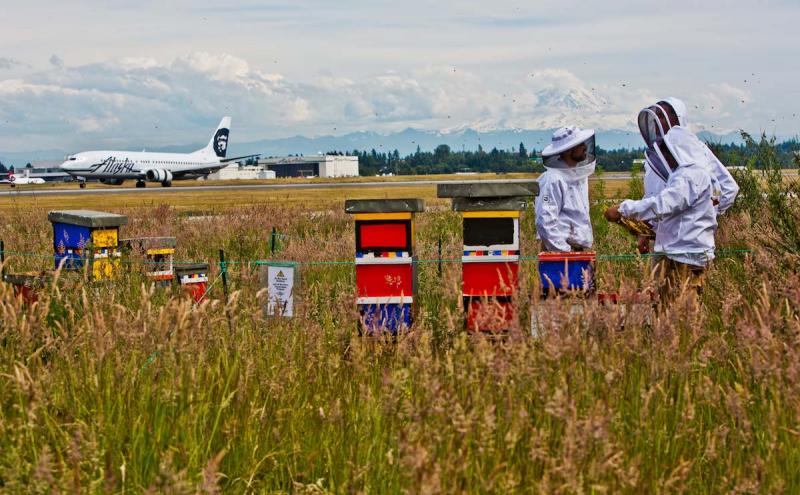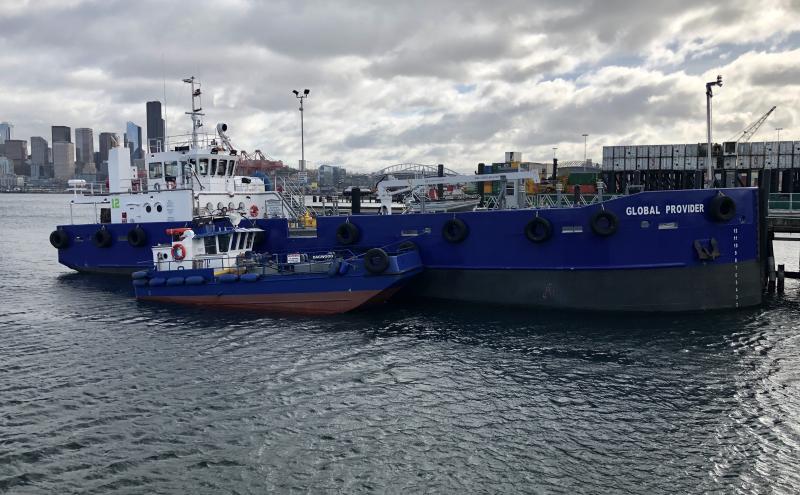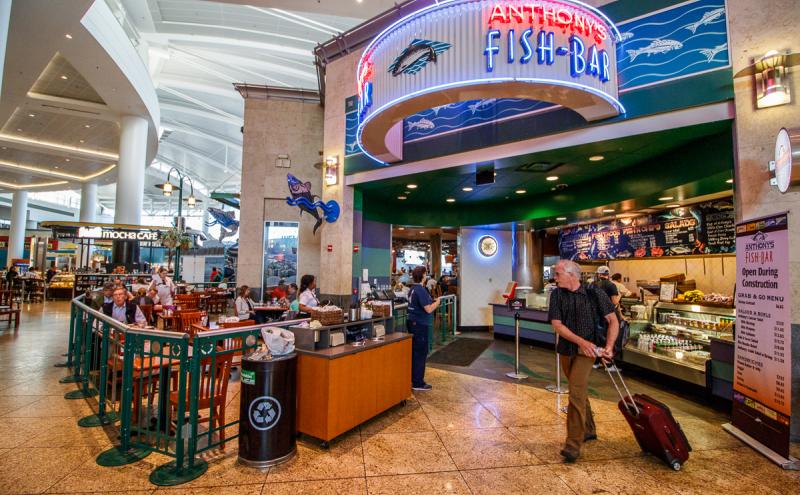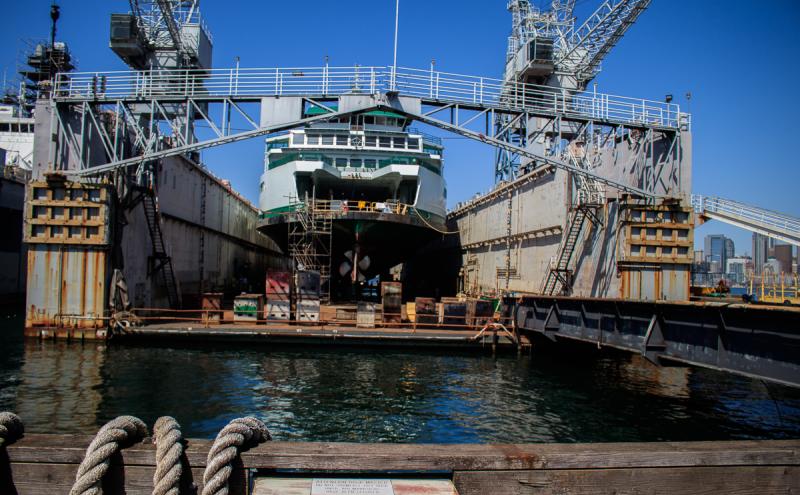
For Vigor Industrial, sustainability is more than a company initiative — it’s a reflection on the values of the people who work there.
The shipbuilding company with nine locations throughout the northwest and Alaska builds fishing boats, tugs, ferries, barges, fireboats, high performance combatant crafts, and a variety of aluminum workboats. One of the company values listed on the website is “love”, which is an unusual value for an industrial company to display prominently.
“The value reflects loving the people we work with and the world we live in,” said Jill Mackie, Senior Vice President of Public Affairs at Vigor.
“It drives Vigor’s efforts to be a responsible environmental citizen,” she said. “We go above and beyond to find ways we can contribute that are consistent with the values of the people we work with and community we live in.”
Vigor is the winner of a 2017 Port of Seattle Environmental Excellence Award for Environmental Performance. Mackie said there has long been a stereotype that people who do industrial work don’t care about the environment, but the people who work for Vigor are fishermen, hunters, hikers, and skiers, and enjoy the same outdoor activities as anyone else in the community.
“We live here; we’re raising our families here,” Mackie said. “Our people are of this place; they love this place. They have their own environmental ethic. We want to be the kind of company they want to be a part of.”
Our people are of this place; they love this place.
Vigor’s recent environmental work includes the installation of energy-efficient LED fixtures in workshops and office buildings, an in-depth analysis of the waste stream that dramatically reduced garbage output, and a monthly shipyard cleaning campaign.
LED Fixture Installation
In 2017, LEDs with motion sensors were installed in six workshops and office buildings at their Harbor Island facility.
“It improved the lighting for people working and made it much safer for them,” said John Rosevear, Environmental Manager at Vigor.
Vigor projects that it will take less than one and a half years to see a return on investment and so far it has reduced the facility’s energy consumption by 823,000 kilowatt hours annually.
Reduced Garbage Output
After conducting a waste stream analysis, Rosevear determined that people were treating construction debris like trash or garbage, when it was actually recyclable. Through the analysis he was able to eliminate that waste stream and as a result, 90 percent of project waste is now recycled and just 10 percent goes in the landfill.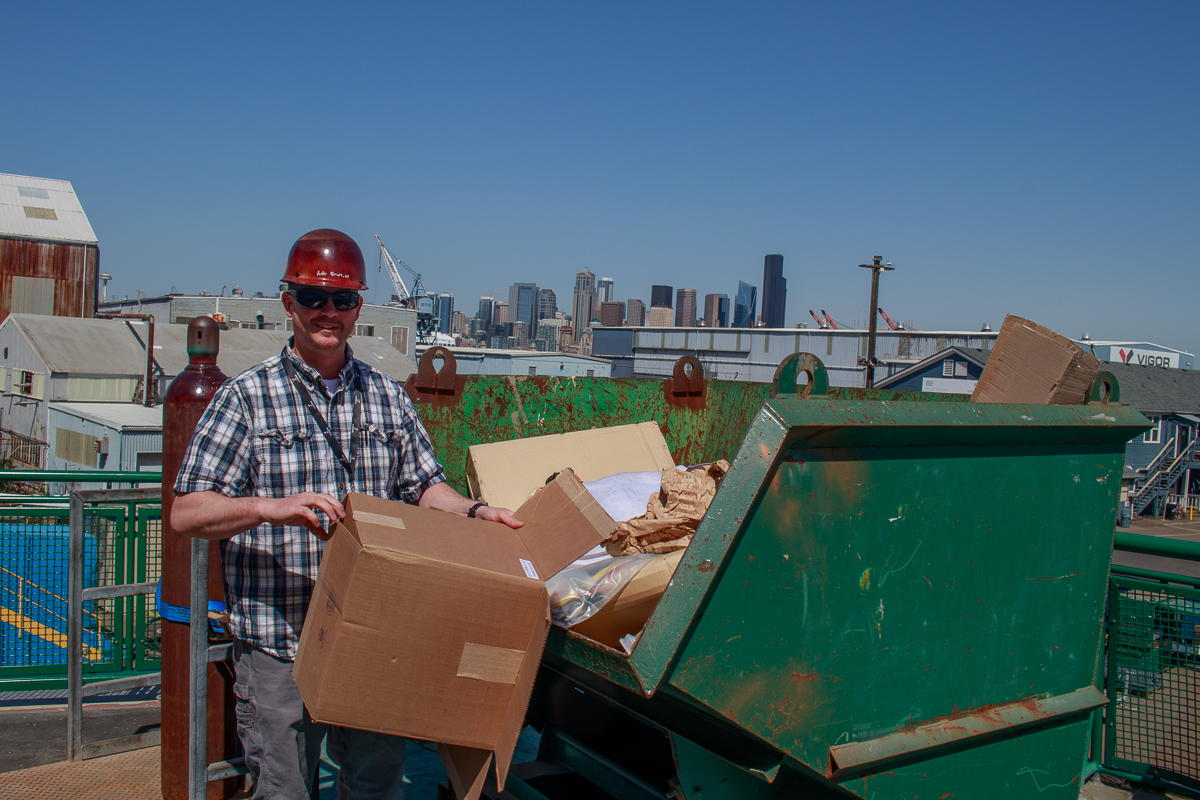
The company led an Earth Day clean up on Harbor Island, in addition to monthly Extreme Clean events within the Harbor Island facility where all employees get out for an hour or so to clean the shipyard, focusing on windblown debris and stormwater runoff.
Habitat Restoration
Beyond these initiatives, Vigor is working on a habitat restoration project on Vigor’s Harbor Island property. When Vigor acquired Todd Shipyards, they also acquired the Superfund site associated with the Duwamish.
“Now there’s a significant part of the yard with no utility or industrial purpose, so we came up with a proposal to Natural Resource Trustees for a salmon recovery project located at the mouth of the Duwamish River,” said Alan Sprott, Vice President at Vigor.
Sprott said Vigor is in the final phases of design and permitting for the project and it should be completed in three to four years.
With the lessons learned in working through that project, Vigor has other efforts in place at other facilities to build micro habitats into the industrial landscape.
“In areas where we work, it is pretty much expected by the community that people act responsibly, and engage with community concerns and how they conduct themselves,” Sprott said. “It’s part of the company’s effort to shape its new culture through projects like these. It is walking the talk and showing that we’re serious about cultural changes. It’s one of the cornerstone pieces of how we interact with the public, workforce, and communities around our facilities.”

